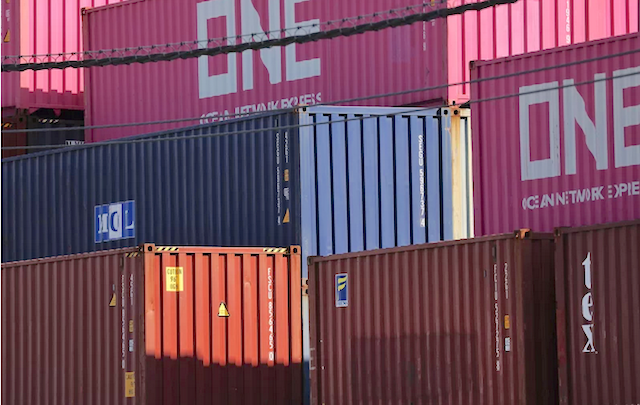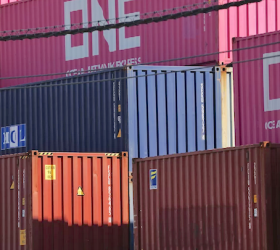An FCL (full container load) shipment is when a container is used to ship products from one place to another. Shipping companies usually choose the option of FCL because it is such an affordable and efficient means of transporting goods safely in bulk.
 When shipping items in this way, it can be difficult for businesses to decide which party is responsible for the fees associated with the transport. Depending on various contractual factors regarding the FCL container to be shipped, it can also differ from shipment to shipment.
When shipping items in this way, it can be difficult for businesses to decide which party is responsible for the fees associated with the transport. Depending on various contractual factors regarding the FCL container to be shipped, it can also differ from shipment to shipment.
The company sending the items may have to pay some of the charges, while both companies could be charged fees depending on their agreements.
Many terms are used about an FCL shipment that will affect how much money needs to be paid.
For example, when talking about FOB prices, this means that one party pays all of the costs until the goods are loaded onto a vessel, while CIF prices mean that one business has to pay all costs until they arrive at their destination port.
What are FOB prices?
FOB means ‘free on board’ and that the shipping company is responsible for all costs until loaded onto a vessel. The term FCA is a ‘free carrier’, which means the same thing, but once the goods are loaded onto a vessel, it is considered that they have left their supplier’s premises.
In contrast, CIF prices mean that one business must pay all costs until they arrive at their destination port.
What are CIF prices?
CIF stands for ‘cost, insurance and freight and means precisely what it says; all fees associated with transportation must be paid by one party before arriving at its final destination port. Other terms may be used when discussing an FCL shipment, so it can sometimes be challenging to understand who is responsible for what.
What are CPT prices?
CPT stands for ‘carriage paid to’ and usually means that one company must cover any transportation costs until they arrive at their final destination. This term is commonly used in international trade and usually means delivering the goods to a specific location.
What are EXW prices?
EXW means ‘ex-works’ and usually means that one business pays all costs until the items leave their premises or warehouse. This term is commonly used when discussing international trade because it can simplify things; however, keep in mind that this does not mean that delivery has taken place.
What are FAS prices?
FAS stands for ‘free alongside ship’ and usually means that one business will pay the costs until the items reach the destination port. This term is often used in international trade, but you should consider that this does not mean that delivery has taken place.
So who is responsible for each payment?
If you are shipping items internationally, it can often be challenging to determine who will be responsible for each payment. The party sending the goods may have to pay some of the costs associated with an FCL shipment, while both companies could also be charged fees depending on their agreements.
For example, if you were shipping items in an FCL shipment and used CPT prices, you are responsible for paying any fees for transporting your items to their final destination. This means that delivery would occur once the goods leave your premises; however, it can often be challenging to determine who is responsible for what during an FCL transaction, so always ask questions when necessary.
FOB prices
The shipping company pays all fees associated with transporting goods onto a ship, but delivery does not occur until they arrive in port in their destination country.
CIF prices
The business that agrees to take on all costs until the items arrive at their final destination port is responsible for the payment.
CPT prices
The company sending items abroad is responsible for paying transportation costs until they reach their final destination.
EXW prices
The stipulations of your contract will usually outline who is required to pay each cost associated with transportation. Suppose there are no specific rules about this in your contract. In that case, often, the business that prepares the items for shipping will also have to pay for transportation and cover all associated costs.
FAS prices
The party responsible for shipping goods is usually responsible for any materials used to ship them to their final destination port.
In conclusion
The industry jargon in international freight services, customs and clearing, and logistics can be extremely overwhelming, especially if your first shipment. Always talk to a reputable and experienced logistics specialist, like the team at Shipco.
It helps to gather as much information as possible. It can save you time, money and many frustrations when partnering with experts you can trust to deliver your goods safely and on time.




